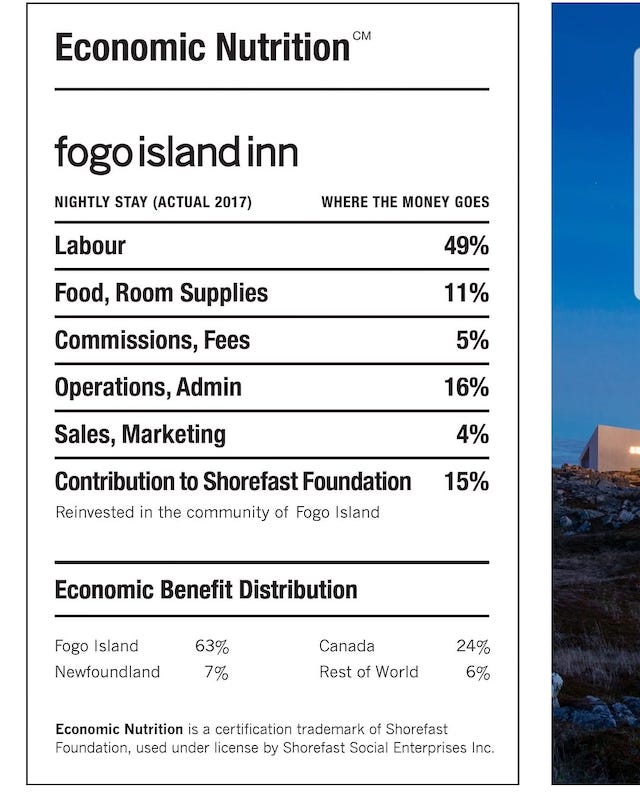
image of the Maldives by David Mark from Pixabay, CC0; the islands will likely be completely submerged due to sea level rise from glacial melt by mid-century
I’ve recently updated the (highly subjective) list of my ‘best’ 94 posts. That’s out of nearly 3000 posts since this blog began in February 2003 (I started posting “links of the week/ month/ quarter” soon after), up through May 21st of this year. The list is shown in the right sidebar (sorted by category, newest first in each category), and several of my most recent posts are on the list. That includes my latest writings on collapse, on direct action, on human nature, on radical nonduality and the cognitive dissonance that belief in it produces, and some new creative works.
Writing about these subjects, some of which I’ve been touching on since this blog started, still seems to be what’s worth doing now.
On to the links:
PREPARING FOR CIVILIZATION’S END

in a NYT piece by Claire Cain Miller (ironically behind paywall); thanks to Tree Bressen for the link; via Corporate Rebels
No Happy Ending: Roy Scranton, author of Learning to Die in the Anthropocene has just written a lovely and scathing review of two new ‘dire but still hopeful’ books on collapse, in the LA Review of Books this week. It is actually a broad summation of the current state of writing about collapse and of some of its leading lights. Well worth a read. Teaser:
Unluckily for us, climate change is not a moral fable, a point [David] Wallace-Wells [author of the much-debated essay The Uninhabitable Earth] makes but then seems to forget. “There is nothing to learn from global warming,” he writes early on, “because we do not have the time, or the distance, to contemplate its lessons; we are after all not merely telling the story but living it.” And therein lies the problem with both books. The story we’re living is one of failure, catastrophe, suffering, and tragedy: an out-of-control car careening off a dark road. The story Wallace-Wells and [Bill] McKibben wind up telling, however, is that we’re in control and the skid is manageable, if only we choose to take the wheel. It’s a story I’ve heard before…
The challenge these two capable, intelligent writers struggle with so powerfully, and which they so disappointingly fail to meet, is a challenge that anyone who thinks seriously about climate change confronts: the danger we face is utterly unlike anything humanity has ever faced before. Their moral fables don’t really fit our situation, but neither does the traditional narrative of apocalypse, nor the story of wartime mobilization, nor the story of innovation and progress, nor narratives of heroic overcoming.
Climate change is bigger than any individual moral choice. It’s bigger than the New Deal, bigger than the Marshall Plan, bigger than World War II, bigger than racism, sexism, inequality, slavery, the Holocaust, the end of nature, the Sixth Extinction, famine, war, and plague all put together. The chaos it’s bringing is going to supercharge every other problem. Successfully meeting this crisis would require an abrupt, traumatic revolution in global human society; failing to meet it will be even worse. This is the truth we struggle to comprehend in narrative, the reality our stories must make sense of. The all-too-real possibility we must confront — and which David Wallace-Wells and Bill McKibben notably refuse — is that the story we’re living is a tragedy that ends in disaster, no matter what.
Grim Scenarios: David Spratt and Ian Dunlop, who bring deep credentials in scenario planning and thinking to the task of painting a realistic picture of coming climate change, have dared to illustrate what Roy and David have hinted at, and it’s enough to scare the reader shitless. Their scenario of Earth in 2050 — that’s just three decades from now — refers to “reaching the Endgame”, as many as 2 billion humans displaced by heat, drought and flooding, and utter social breakdown in the face of massive and relentless economic and social disruption caused by extreme climate events, and the report concludes: “In high-end scenarios, the scale of destruction is beyond our capacity to model, with a high likelihood of human civilisation coming to an end.”
Talking With Your Children About Collapse: Despite the sobering reality outlined above, counsellors continue to tell parents to ‘accentuate the positive’ and to help their children to be ‘hopeful’ in light of what we now face. I guess that’s the best they have to offer. What could we do with them that would be more useful, and more honest? Or, perhaps even better, should we just shut up and listen to them?
Michael Dowd’s Collapse Collection: Michael has put together audio recordings of nearly 50 articles and interviews with leading writers about collapse.
LIVING BETTER

image from an innovative ad for a Newfoundland inn; thanks to Jae Mather for the link
How Extinction Rebellion Operates: Roger Hallam explains the theory that lies behind this powerful movement. Radical activist groups, usually quick to criticize new movements as naive, seem to be begrudgingly supportive.
Palestine’s Sisyphus: A review of the remarkable work of Palestinian writer and lawyer Raja Shehadeh.
The Art of the Green New Deal: Naomi Klein, Avi Lewis (yes, they’re Canadians) and Alexandria Ocasio-Cortez have teamed up to produce a video portraying what a successful Green New Deal might look like. It’s about time we leveraged the power of the arts to create a better vision than the terrible ones currently on offer. Thanks to Tree Bressen for the link.
POLITICS AND ECONOMICS AS USUAL

cartoon by the great Australian cartoonist Costa A; thanks to Ben Pennings for the link
The Most Incompetent Businessperson of All Time: The NYT has analyzed 10 years of 45’s old tax returns and they reveal an absolutely staggering level of business incompetence, unparalleled in history, with billions upon billions of dollars lost through poor investments. No wonder he doesn’t want the world to see his recent returns. Although it’s almost inconceivable that the liar-in-chief files honest returns, even what he has disclosed is mind-blowing. Sadly, this is important investigative journalism now buried behind the NYT paywall, much to 45’s benefit. (On the other hand, the NYT has recently come down against universal healthcare for Americans, saying “there is no precedent in American history” for anything so radical, and this strangely regressive position is also locked behind their paywall, for which I am grateful.)
Canada’s Pathetic Political Leaders: Investigative journalist Michael Harris summarizes the endless blundering and poor decision-making of the Trudeau government, and the reasons why his arch-Conservative counterpart is much, much worse. But given the waffling and stupidity of recently-elected provincial NDP governments, that once-great party may be relegated to the history books with this fall’s election, and the Greens’ befuddled backing of environmental atrocities in BC in a hapless attempt to secure proportionate representation, and their cowardly backpedaling on an anti-Israeli-apartheid BDS platform, pretty much assures they will remain a backwater party. There’s basically no ethical progressive party to vote for in Canada.
Canadian Government Yields to Bank Pressure on New Regulations: After the CBC revealed many bank-insider whistle-blowers’ concerns about high-pressure sales tactics used by bank managers on hapless consumers, new regulations were proposed to prohibit them, but the banks were given a copy in advance, and when they didn’t like the new regulations, the government relented and weakened the regulations.
The Oil Industry Has Been Lying About Tar Sands Emissions: Who’d’a guessed?
The UK Brexit Morass: Jonathan Pie brilliantly castigates the UK government for its unbelievable mishandling of Brexit. Not as funny as he is usually, but more important. He’s also at the top of his game with his recent ‘report’ on British citizens’ lack of ‘social mobility’.
Uber’s Master Plan to Take Over Public Transit: Tim Redmond points out an aspect of Uber’s strategy that most people have failed to notice: replacing not only taxis and private automobiles, but municipal buses and trains as well. Thanks to Ben Collver for the link.
Manufacturing Dissent: Danah Boyd, a fellow pioneer in the field dubiously known as ‘knowledge management’, has written an important an insightful address to a digital library group about agnotology (the deliberate manufacture of ignorance in the populace) and epistemological fragmentation (sowing division and doubt through the provocative use and propagation of misinformation). Social media, she says, play perfectly into the hands of perpetrators of both. The article explains how and why this is happening, and the consequences if it continues unabated. Thanks to John Kellden for the link.
FUN AND INSPIRATION

screen cap from a segment on Santorini island, Greece in a 4k video by 4k Urban Life (click on image to see full size); more amazing 4k videos take you to Paris or London at night, or La Habana Cuba. You don’t even need 4k capacity on your laptop to be blown away at how immersive this technology has become.
Handpan Music from a Sicily Mountaintop: Giolì and Assia perform a long set of EDM with handpan accompaniment from a breathtaking location.
How Different Generations Would Invest $10,000: If you got a tax-free gift of $10,000, how would you spend it? This chart shows the generational differences, and they’re telling. Thanks to Jae Mather for the link.
The Art of Colourizing Old Photos: See how the experts do it, step-by-step instructions to DIY, and how colourizing can fool you.
How the Other 90% Live: Al Jazeera takes you to Lagos, Nigeria, soon to be the world’s largest city (growing by about a million people a year, most of them refugees and many of them uncounted), and the story of two young teachers from Benin struggling to survive in the big city.
How to Sabotage Your Workplace: Corporate Rebels republish a fascinating (recently declassified) CIA report written in 1944 to help allied sympathizers in axis-controlled and -occupied nations disrupt work productivity in their homelands, which contains some mighty powerful ideas for doing the same thing today. What’s even more interesting is how these tactics overlap with many of the behaviours seen in many corporate executives and management of large organizations (hopefully unwittingly). Makes for fascinating and sometimes hilarious reading. Thanks to Tree Bressen for the link.
Did the Last Climate Emergency Create Bipedal Humans?: A new study of waves of massive electron storms lasting five million years and ending just over two million years ago (caused by cosmic radiation from supernovae 160 light years away) may have burned up much of the tropical rainforest that was then home to early hominids, in megafires, especially in East Africa, forcing them to migrate and adapt to savanna conditions better suited to standing on two legs, and other radical behaviour changes. So climate change may have been responsible for causing civilization to arise in the first place, just as it is now responsible for causing its end.
A Brilliant New Piano Talent: Young Georgian (the country, not the state) pianist Khatia Buniatishvili (there’s a cedilla under the s but my keyboard can’t show it) is creating a sensation in the classical music world. Alas, too many old male music critics are so distracted by her appearance that they discount what she is doing to revolutionize the art. There has been a recent trend to play piano works (especially slow movements) more slowly to infuse more emotion into the playing. The adagio from Rachmaninoff’s 2nd piano concerto, for example, was played by the composer in about 10 minutes, and more recently by the great Lang Lang in 14 minutes. Khatia ratchets it back to 10 without losing a trace of the nuance and emotional power of the music. She and her sister Gvantsa likewise partner in Bach’s concerto for two pianos and orchestra, sprinting through it deftly and passionately in a breathtaking 13:40. Everything Khatia performs sounds new, especially when she pairs up with the remarkable Orchestra Un Violon Sur le Sable, which is also reinventing the performance of many classical standards. And on top of that Khatia is remarkably astute as a political analyst (in at least four languages) as this interview in her adopted France demonstrates.
THOUGHTS FOR THE QUARTER

cartoon by Keith J. Taylor; thanks to Ron Woodall for the link
From Scott Budman (thanks to Hildy Gottlieb for the link): “Went to synagogue yesterday for my friend’s daughter’s bat mitzvah. Arrived and saw five people holding signs by the door. I thought, protestors? No. Muslims. The signs said ‘We’re better together. We’ll keep watch while you pray.'”
From Nick Humphrey, geoscientist and meteorologist, in a recent interview with xRay Mike:
I do not think it is possible [as XR is demanding] to transition to a net-zero carbon emission civilization within a decade. The idea itself is simply absurd because it would require basically returning to a pre-industrial society with none of the benefits which came from building the society provided by fossil fuels… Meanwhile, none of this stops climate change because there is already so much damage in the pipeline. At 500 parts per million of equivalent carbon dioxide concentration, enough greenhouse gases are currently in the atmosphere to ultimately warm the planet 4-5 degrees C/7-9 F above 1700s temperatures, raise the sea level by 220 feet/67 meters (assuming 1 ppm CO2 equivalent = 1 ft sea level rise, based on past longer-term paleoclimate change response), and remove significant amounts of soil moisture, leading to the destruction of agriculture. And this is without any other carbon releases or feedbacks…
We are entering a range of weather conditions not supportive of agriculture. And not simply monoculture. All agriculture. Even other ways of doing Ag require stable weather conditions, seasonality, soils and ability to conduct economic activity between peoples. None of this will be possible in these conditions. And that assumes the ecosystems which support agriculture also remain stable and available and that is not likely given the ongoing global extinction of insects.





“[as XR is demanding]” ??
I read the interview when xraymike first published it & again just now & mike makes no such demands.
Not Mike’s demands, XR’s (demand #2): https://rebellion.earth/the-truth/demands/ XR as in eXtinction Rebellion not XRay.
Thanks for clearing that up for me Dave. Is it Christmas or Xmas?